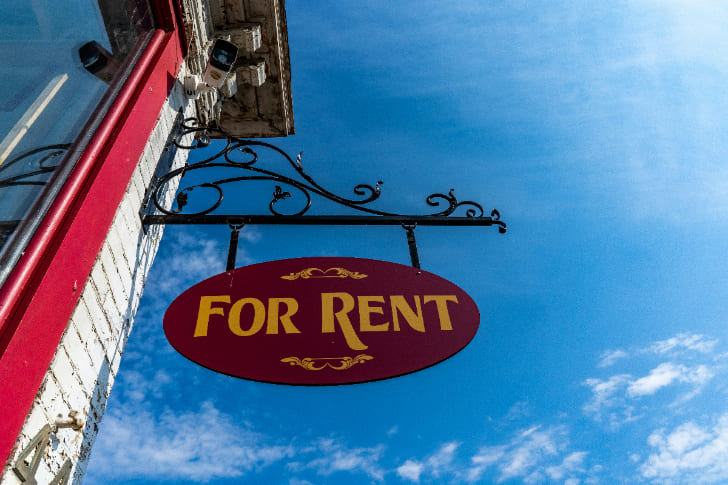Renting a home or apartment offers flexibility and freedom, but it also comes with responsibilities. One of the most important protections a renter can have is renters insurance. Many renters assume their landlord’s insurance covers their belongings, but that is often not the case. Renters insurance protects your personal property, liability, and even additional living expenses in case of unforeseen events.
Understanding the nuances of renters insurance can save you significant financial stress and provide peace of mind.

This article explores 10 essential things you must know about renters insurance.
1. Renters Insurance Protects Your Personal Property
The primary purpose of renters insurance is to safeguard your personal belongings against loss or damage due to covered events, known as “perils.” Typical perils include:
- Fire
- Theft or burglary
- Vandalism
- Certain natural disasters like windstorms or hail
Example: If a fire damages your apartment and destroys your furniture, electronics, and clothing, renters insurance can help pay to replace these items.
It’s important to note that the coverage usually applies inside and sometimes outside your rented home. For instance, stolen items from your car or while traveling may also be covered, depending on your policy.
2. Renters Insurance Includes Liability Protection
Another critical aspect of renters insurance is liability coverage. This protects you if someone is injured in your rented home or if you accidentally cause damage to someone else’s property.
Example: If a guest slips and falls in your apartment and sues you for medical costs, liability coverage can pay for legal fees and settlements.
Liability coverage typically ranges from $100,000 to $500,000, but you can increase it if needed. This is essential for protecting your assets and financial future.
3. It Can Cover Additional Living Expenses
If your rental becomes uninhabitable due to a covered event, renters insurance can cover additional living expenses (ALE). This includes:
- Hotel or temporary housing costs
- Meals if your kitchen is unusable
- Storage for your belongings while your home is repaired
Example: A burst pipe damages your apartment, forcing you to stay in a hotel for two weeks. Renters insurance can cover your hotel bills, meals, and other necessary expenses.
ALE coverage ensures you can continue your daily life without incurring massive out-of-pocket costs.
4. Renters Insurance Is Affordable
Many people overestimate the cost of renters insurance. In reality, renters insurance is often inexpensive, averaging $15 to $30 per month, depending on coverage limits, location, and deductible.
Tip: Compare quotes from different insurers, and look for discounts for bundling with auto insurance or having security devices like alarms.
The affordability makes renters insurance an accessible safety net, even for those on a tight budget.
5. Renters Insurance May Require an Inventory of Your Belongings
To make a claim easier and ensure adequate coverage, it’s wise to keep an inventory of your possessions. Include:
- Photos or videos of your items
- Receipts or proof of purchase for valuable items
- Serial numbers for electronics
Example: If a burglary occurs and you lose $10,000 worth of electronics and furniture, an inventory with receipts and photos makes filing a claim smoother and helps verify the loss.
A detailed inventory also helps ensure you purchase sufficient coverage limits to replace your belongings fully.
6. Renters Insurance Does Not Cover Everything
While renters insurance provides broad protection, it does not cover all risks. Common exclusions include:
- Flood damage (requires separate flood insurance)
- Earthquake damage (may require additional coverage)
- Normal wear and tear or maintenance issues
- High-value collectibles unless specifically scheduled
Tip: Assess your unique risks and consider endorsements or riders for items like jewelry, fine art, or electronics.
Understanding these exclusions prevents surprises during a claim and ensures you have proper protection.
7. Deductibles Affect Your Policy
Like most insurance, renters insurance includes a deductible, which is the amount you pay out-of-pocket before coverage applies.
- Higher deductibles lower monthly premiums but increase out-of-pocket costs.
- Lower deductibles mean higher premiums but less out-of-pocket expense for claims.
Example: If your apartment suffers $5,000 in damages and your deductible is $500, you pay $500, and the insurance covers $4,500.
Choosing the right deductible balance is essential for managing both premium costs and potential claims expenses.
8. Renters Insurance May Cover Personal Liability Off-Premises
Some renters insurance policies extend liability coverage beyond your home. This means you could be protected if:
- You accidentally damage a friend’s property
- You cause injury to someone while away from home
- You are involved in a small accident during everyday activities
Example: You accidentally spill coffee on a friend’s expensive laptop. Renters insurance with off-premises liability coverage can cover the repair or replacement.
This feature is particularly valuable for renters who frequently travel or socialize outside their homes.
9. Renters Insurance Protects Roommates and Family Members
Renters insurance can sometimes cover roommates or family members living in the same residence, depending on the policy. Typically, coverage applies to:
- Your personal belongings
- Shared liability claims
Tip: Each person should ideally have a separate renters insurance policy to ensure full protection of their belongings and liability coverage.
This is important in shared living situations where personal property and risks are intermingled.
10. Choosing the Right Renters Insurance Policy
Selecting the right renters insurance policy requires careful consideration. Here are some factors to evaluate:
- Coverage limits: Ensure your policy covers the full replacement cost of your belongings.
- Liability protection: Consider your financial exposure and select adequate limits.
- Deductible: Balance affordability with out-of-pocket expense for claims.
- Exclusions: Understand what is not covered and consider additional riders if necessary.
- Insurance company reputation: Choose a company known for fair claims handling and customer service.
Example: A policy with a $50,000 personal property limit might be insufficient if you own expensive electronics, furniture, or collectibles. Increasing coverage or adding riders may be necessary.
Additional Considerations for Renters Insurance
Beyond the 10 essential points, renters should consider:
- Bundling Discounts: Many insurers offer savings when you combine renters and auto insurance.
- Specialized Coverage: For high-value items like jewelry, photography equipment, or musical instruments, schedule additional coverage.
- Natural Disaster Protection: If you live in flood-prone or earthquake-prone areas, consider separate policies or riders.
- Regular Policy Reviews: Update coverage periodically to reflect new purchases or lifestyle changes.
- Claims History: Avoid frequent claims to maintain low premiums and avoid potential policy non-renewal.
Tip: Proactively managing your renters insurance ensures comprehensive protection while keeping premiums affordable.
Benefits of Renters Insurance
Renters insurance provides a wide array of benefits:
- Financial Security: Replaces lost or damaged personal property.
- Liability Protection: Covers lawsuits for injuries or property damage.
- Peace of Mind: Ensures that unforeseen events do not derail your financial stability.
- Affordable Protection: Most policies are inexpensive, making coverage accessible.
- Flexibility: Coverage can often be customized for unique risks and personal property.
Example: A kitchen fire destroys your apartment and belongings. Renters insurance can cover replacement costs, temporary living expenses, and liability if the fire spreads to a neighbor’s unit.
Common Misconceptions About Renters Insurance
- “My landlord’s insurance covers me.”
Landlord insurance typically covers the building, not your personal belongings or liability. - “I don’t have expensive items, so I don’t need it.”
Even modest belongings have replacement costs, and liability coverage is important regardless of wealth. - “It’s too expensive.”
Most policies are inexpensive, often less than $30 per month, making them accessible for most renters. - “I’m careful, so nothing will happen.”
Accidents, thefts, or disasters can occur to anyone. Renters insurance provides a safety net for unforeseen events.
Conclusion
Renters insurance is a vital tool for protecting your personal property, financial assets, and peace of mind while renting. From personal property coverage and liability protection to additional living expenses, a good policy ensures you are prepared for unexpected events.
By understanding the 10 key aspects of renters insurance, you can make informed decisions, avoid coverage gaps, and secure comprehensive protection for yourself and your belongings.
Key Takeaways:
- Renters insurance protects personal property from covered perils.
- Liability coverage safeguards you against lawsuits.
- Additional living expenses cover temporary housing if your rental is uninhabitable.
- Renters insurance is affordable and accessible.
- Keep an inventory of your belongings for smoother claims.
- Policies may exclude certain events, like floods or earthquakes.
- Deductibles affect both premiums and out-of-pocket costs.
- Liability coverage may extend beyond your home.
- Coverage can protect roommates and family members.
- Choosing the right policy requires reviewing coverage limits, exclusions, and insurer reputation.
Renters insurance is a small cost for peace of mind and comprehensive protection. By carefully selecting the right policy, keeping coverage updated, and understanding your policy’s details, you can ensure financial security in the face of unexpected events.








Leave a Reply